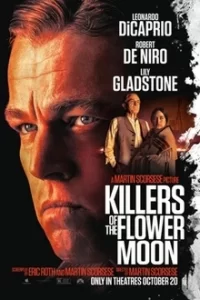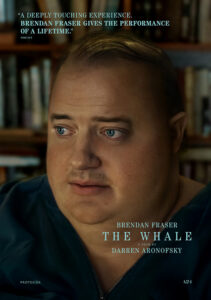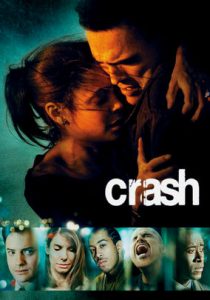Killers of the Flower Moon-2023
Director Martin Scorsese
Starring Leonardo DiCaprio, Robert De Niro, Lily Gladstone
Scott’s Review #1,406
Reviewed October 22, 2023
Grade: A
One great thing about legendary director Martin Scorsese, and there are plenty I could mention, is that he continues to challenge his audience with his films well into his eighties.
Any aspiring filmmaker, or any cinephile, should study his films.
Before I knew too much about his new picture, Killers of the Flower Moon (2023) I knew I wanted to see it because I trust Scorsese as a director.
His most recent films, The Wolf of Wall Street (2013) and The Irishman (2019) are not easy watches but the payoff is tremendous.
Scorsese is not the kind of filmmaker to create feel-good fluff but leaves the audience pondering what they’ve seen long after leaving the theater.
Leonardo DiCaprio and Robert De Niro, two frequent Scorsese collaborators and great actors appear in Killers of the Flower Moon assuring something of quality.
Be forewarned that at an enormous running time of three hours and twenty-six minutes, the film is long! Like a fine wine, it took me about an hour or so to immerse myself in the texture and storytelling but this only defends the richness of the experience.
Based on David Grann’s broadly lauded best-selling book, “Killers of the Flower Moon” is set in 1920s Oklahoma and depicts the serial murder of members of the oil-wealthy Osage Nation, a string of brutal crimes that came to be known as the Reign of Terror.
In 1918, Ernest Burkhart (DiCaprio) returns from World War I to his uncle, rancher William “King” Hale (De Niro), who lives with Ernest’s brother Byron (Scott Sheperd) on the reservation. Hale pretends to be a friendly supporter of the Osage people, but he secretly schemes to murder them and steal their wealth.
Lily Gladstone who has starred mainly in independent films makes her breakthrough performance as Mollie Burkhart, a wealthy Native American woman who is the love interest of Ernest.
The cast is unwieldy and features stalwarts like Brendan Fraser and John Lithgow in small roles but the notable mentions are DiCaprio, De Niro, and Gladstone.
Each scene between the three crackles with phenomenal acting and attention to their craft. Gladstone quietly yet expressively emotes her character’s feelings and emotions. Mollie is a proud woman but not gullible as she presents a strong feminist quality.
Her scenes with DiCaprio resonate the most. His character of Ernest is complicated and possesses good and bad qualities. As Mollie professes early on he is handsome but not too smart.
Her statement comes further into play at the end of the film.
Amid the schemes and murders Killers of the Flower Moon embraces a sweet romantic story between Ernest and Mollie. They love each other and he adores her and their children but is it ultimately enough?
Any aspiring actors should hone in on scenes between DiCaprio and De Niro for inspiration. Each scene and line within the scene is delivered with naturalness. Carefully yet authentically executed their conversations are mesmerizing.
De Niro reportedly and unsurprisingly modeled his character after the callous and dastardly reality star turned-politician Donald Trump. Pretending to be well-intentioned but instead bullying and scheming his way to fortune by bamboozling the weak, De Niro channels his inner asshole with precision.
I immediately recognized what the actor was going for concerning the hateful politician.
In what only enhances the film, Scorsese appears at the beginning and end with impassioned moments about the importance of telling this story.
Filmed in Oklahoma, many sequences of open land, fields, streams, and other natural elements appear. Scorsese often uses the same film crews which enhances the authenticity.
The cinematography is filled with early 1900s facets and real Native American people are featured. The colors and tribal outfits offer culture and a glimpse into their way of life.
Killers of the Flower Moon (2023) is an important film because it teaches and reminds the audience that oppression and tragedy have existed in the United States and still do today.
The telling of one group of people is sound and a stark reminder of how many more stories exist each needing the help of a great filmmaker to bring exposure.
Scorsese does it again.
Oscar Nominations: Best Picture, Best Director-Martin Scorsese, Best Actress-Lily Gladstone, Best Supporting Actor-Robert De Niro, Best Film Editing, Best Cinematography, Best Costume Design, Best Production Design, Best Original Score, Best Original Song-“Wahzhazhe (A Song For My People)


